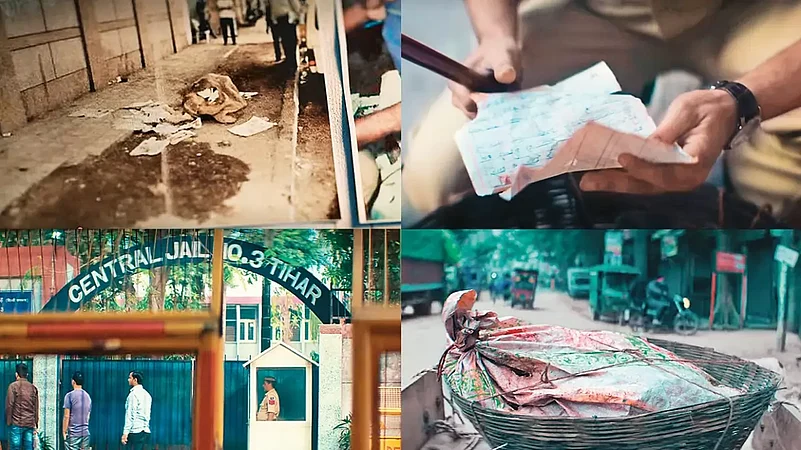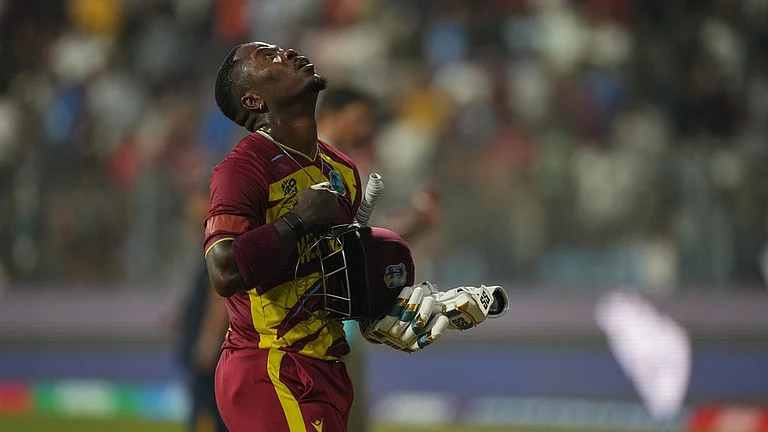The true crime documentary series Indian Predator: The Butcher of Delhi, released on Netflix earlier this year, attempted to recreate the life and modus operandi of serial killer Chandrakanth Jha. Between 1998 and 2007, Jha, operating in West Delhi, murdered and dismem–bered as many as 18 of his victims, typically young, male migrant workers. His story, however, did not make the news at the time.
Filmmaker Ayesha Sood, director of Indian Predator: The Butcher of Delhi speaks to Rakhi Bose of Outlook about the challenges in documenting violent crime, the politics of the news cycle and why some cases get more attention than others
What drew you to the story of Chandrakanth Jha (‘CJ’) that made you create Indian Predator: The Butcher of Delhi?
From a pool of stories that were being researched by Vice India for Netflix, they gave me around 3-4 cases, along with case files and some context. This was during the pandemic; so, geographically, it made sense for me to explore the one closest to home. I was intrigued by CJ’s case because I keenly observe stories of Delhi crime but I had never heard of this one. This formed one of the early threads I’d wanted to explore—why some cases are missed by the 24-hour shrill of the news cycle and some go ‘viral’.
In 2020, I also witnessed the mass exodus of migrant labourers from our cities due to the apathy of our government. That this story was set in this world also added to my interest.
An older documentary, The Karma Killings, based on the Nithari serial murders of 2005-06 has been criticised for lacking ‘objectivity.’ How do you perceive ‘objectivity’ in the portrayal of a character as disturbed as CJ?
We don’t work with a script in documentary filmmaking; we work with case materials and the accounts of people who are a part of the story. I don’t believe that a documentary has to be objective; it is always a subjective perspective. However, one needs to remain as close to the version of the story that you, as the maker, believe to be the truest.
For your series, you spoke to police officers, villagers who knew the accused and his former associates. What was your impression of their perception of Jha’s mental condition or the crimes he committed?
The manifestation of violence and its perception varies across the country and class. In a place like Bihar, or parts of UP, or the slums of Delhi, life is harsh. Living conditions are below the poverty line and existence is hand to mouth. I don’t think people have time to reflect on the trauma caused. Sadly, they have to get on with their own lives, and they are definitely more resilient.

Did you face any major challenges while making Indian Predator?
Many; since there wasn’t much reporting on this case, we had limited archival material to build the story. In India, we are poor archivists anyway, and information gets lost. We also shot this during the pandemic, with huge restrictions. Some of our crew were breaking their months-long isolation by meeting us. Our shoot schedule was hit by city-wide lockdowns due to the badly handled farmers’ protests. Azadpur mandi was one of our main locations and it was massively hit by the blockades. There was a blanket ban on drones and shooting in sensitive areas, and we had to push our schedule.
Ever since the BBC documentary (Leslee Udwin’s India’s Daughter), camera crews aren’t allowed to shoot with convicts in Tihar. We were unable to get CJ on camera. The trauma from this story has made CJ’s family want to forget and not associate either with him or this story, and they were unwilling to give us a statement.
Once we started editing, the horrifically managed delta wave ripped through India. Everyone working with me lost someone close to them and were scrambling for hospitals and oxygen. So yes, I think it’s a miracle that we even got this made.
Are there more true crime documentaries in the offing?
I am working on another documentary series, but it’s not a true crime one this time.
Speaking of true crime, Aftab Poonawalla claims he drew inspiration from Dexter, the TV show, to do what he did. Do you worry that TV shows and films glamorise violence?
I think badly made TV and cinema can glamorise or misrepresent violence, patriarchy, equality and anything under the sun. Society will learn and adapt from what it consumes, and the justice system will have to follow. As a film-maker, there is a responsibility to walk the fine line but it’s highly subjective.
Ultimately, the responsibility lies with the perpetrator and his interpretation of things. You and I have also watched Dexter but it hasn’t led us to chop up people and put them in the freezer.
But why do you think people are drawn to such shows and films?
On one level, it’s a window into the world around you; it allows you to explore how and why things go wrong on a social, familial and personal level. On another, you have the sense of solving one, small puzzle among the multitude of issues that plague our modern worlds. So the intellectual engagement is heightened as compared to, say, if you’re watching a romcom where you’re probably emotionally engaged.
Having worked so closely with the psyche of a serial killer, what is your takeaway regarding what makes a psychopath?
I think it’s a combination of things. The circumstances of your life along with the traumas you experience and your particular brain chemistry and personality. Nature plus nurture, in a sense.
And do you see CJ as the villain or the victim? Is such a distinction valid?
Dualities and multitudes are the reality of life for me. I don’t see anything as black and white. We want things in films to be neatly tied up in a bow but real life isn’t like that.
I’m wondering if India is an inherently violent country...
I think there is a normalisation of violence across this country. It’s a country where rapists are garlanded, where it isn’t a crime to rape your wife, where it’s okay to kill because you suspect someone has meat in their fridge. We have a long way to go in re-calibrating our ideas on human rights and the kind of violence we accept as a developed society.
In your work, how do you like to handle themes pertaining to masculinised violence?
I’m interested in turning the lens on men and masculinity. There has been heaps written about how to save and educate our daughters,
I think it’s time to save and educate our boys as well.


























